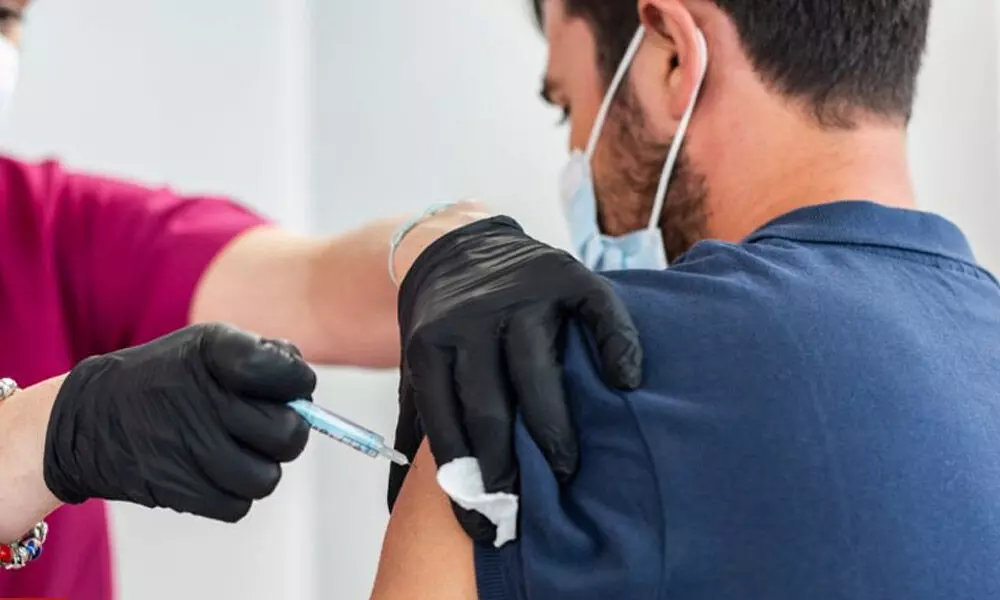Heart inflammation more common after Covid than Pfizer vaccine: Study

Covid-19 special drive vaccination continues for 18-44 age group
Pfizer's Covid vaccine has been linked with an increased risk of developing myocarditis -- a type of heart inflammation
New York: Pfizer's Covid vaccine has been linked with an increased risk of developing myocarditis -- a type of heart inflammation. But, the risk of the condition that can lead to heart failure, abnormal heartbeat and sudden death is more common after being infected with Covid-19, finds a large study that emphasises the need to get jabbed.
The study, published in the New England Journal of Medicine, showed that the Pfizer/BioNTech BNT162B2 vaccine against Covid-19 is safe. Out of 25 potential side effects examined, four were found to have a strong association with the vaccine.
Myocarditis was found to be associated with the vaccine, but rarely -- 2.7 excess cases per 1,00,000 vaccinated individuals. The myocarditis events observed after vaccination were concentrated in males between 20 and 34.
In contrast, coronavirus infection in unvaccinated individuals was associated with 11 excess cases of myocarditis per 1,00,000 infected individuals.
Other adverse events moderately associated with vaccination were swelling of the lymph nodes -- a mild side effect that is part of a standard immune response to vaccination -- with 78 excess cases per 1,00,000, appendicitis with 5 excess cases per 1,00,000 (potentially as a result of swelling of lymph nodes around the appendix), and herpes zoster with 16 excess cases per 1,00,000.
However, high rates of multiple serious adverse events were associated with coronavirus infection among unvaccinated patients, including: Cardiac arrhythmias (3.8-fold increase), kidney damage (14.8-fold increase), pericarditis (5.4-fold increase), pulmonary embolism (12.1-fold increase), deep vein thrombosis (3.8-fold increase), myocardial infarction (4.5-fold increase), and stroke (2.1-fold increase).
"These results show convincingly that this mRNA vaccine is very safe and that the alternative of 'natural' morbidity caused by the coronavirus puts a person at significant, higher and much more common risk of serious adverse events," said Professor Ran Balicer, Director of the Clalit Research Institute and Chief Innovation Officer for Clalit.
The study which provides reliable information on vaccine safety, may also help people with vaccine hesitancy.
"Those who have hesitated until now to get vaccinated due to concerns about very rare side effects -- such as myocarditis -- should be aware that the risks for this very same side effect are actually higher among unvaccinated infected individuals," Professor Ben Reis, Director of the Predictive Medicine Group at the Boston Children's and Harvard Medical School.
For the study, the team examined 8,84,828 vaccinated individuals aged 16 and over who were carefully matched with 8,84,828 unvaccinated individuals between December 20, 2020 and May 24, 2021.




